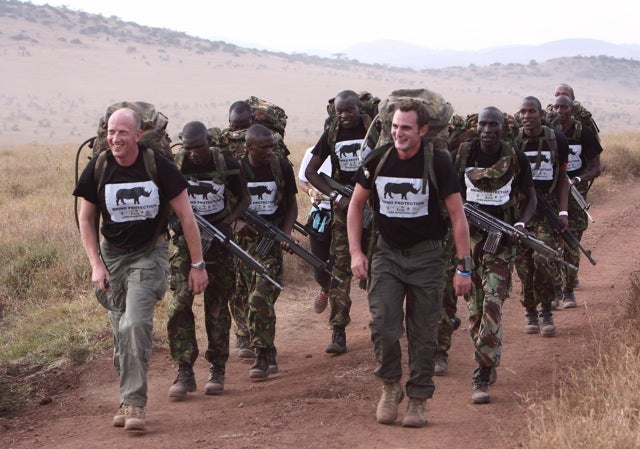Running for Rangers team to raise money for anti-poaching rangers by running 230km marathon
The team are aiming to raise $1.4 million in order to fund the equipment and training for 230 armed wildlife rangers

Your support helps us to tell the story
From reproductive rights to climate change to Big Tech, The Independent is on the ground when the story is developing. Whether it's investigating the financials of Elon Musk's pro-Trump PAC or producing our latest documentary, 'The A Word', which shines a light on the American women fighting for reproductive rights, we know how important it is to parse out the facts from the messaging.
At such a critical moment in US history, we need reporters on the ground. Your donation allows us to keep sending journalists to speak to both sides of the story.
The Independent is trusted by Americans across the entire political spectrum. And unlike many other quality news outlets, we choose not to lock Americans out of our reporting and analysis with paywalls. We believe quality journalism should be available to everyone, paid for by those who can afford it.
Your support makes all the difference.African conservation organisation Running for Rangers are looking to raise over $1 million by running the Jungle Ultra marathon in Peru in June.
Running for Rangers are a group of men and women who run marathons around the world, raising money for the welfare of rangers who risk their lives to protect elephants and rhinos in Africa.
This year, in conjunction with African wildlife conservation charity Space for Giants, Running for Rangers is aiming to raise $1.4 million by running the Jungle Ultra. This money will ensure that 230 armed wildlife rangers - one for every kilometre of the run - have the equipment and training needed to effectively and safely protect wildlife from poachers.
The terrain will not be easy: the team will be running on mountain roads and village tracks, making their way from cloud forest down 10,500 feet to the Amazon Jungle below. Runners will have to carry their own hammock, sleeping bag, food and supplies for the entire race, and all while humidity levels will be approaching 100%.
In April last year a five-person Running for Rangers team ran the infamous Marathon des Sables, a gruelling six-day, 250-kilometre adventure race through the Sahara Desert. The runners raised almost $120,000, which was used to buy new uniforms, thermal imaging and first aid equipment for rangers in the field.
Lions, rhinos and elephants are under increasing pressure across Africa, as the poaching crisis worsens. 100 elephants are being killed a day in the continent, and it is thought that at the current rate there will be no rhinos left in the wild by 2026.
Since the market price for rhino horn now rivals gold at $65,000 -$75,000 a kilo, and the trade in illegal wildlife products is worth over $17 billion a year, poaching is a lucrative business.
Protecting the African wildlife from poachers therefore requires large numbers of highly trained and dedicated rangers. Anti-poaching security teams operate almost entirely at night, in order to track poachers, who tend to work outside daylight hours. They work in harsh, cold and uncomfortable conditions on the front line, risking their lives to protect rhinos and elephants from heavily armed gangs. Over a thousand rangers have been killed in the line of duty since 2013.
To find out more about Running for Rangers, watch their video here.
To donate, and help them reach their fundraising total, click here.
Join our commenting forum
Join thought-provoking conversations, follow other Independent readers and see their replies
Comments